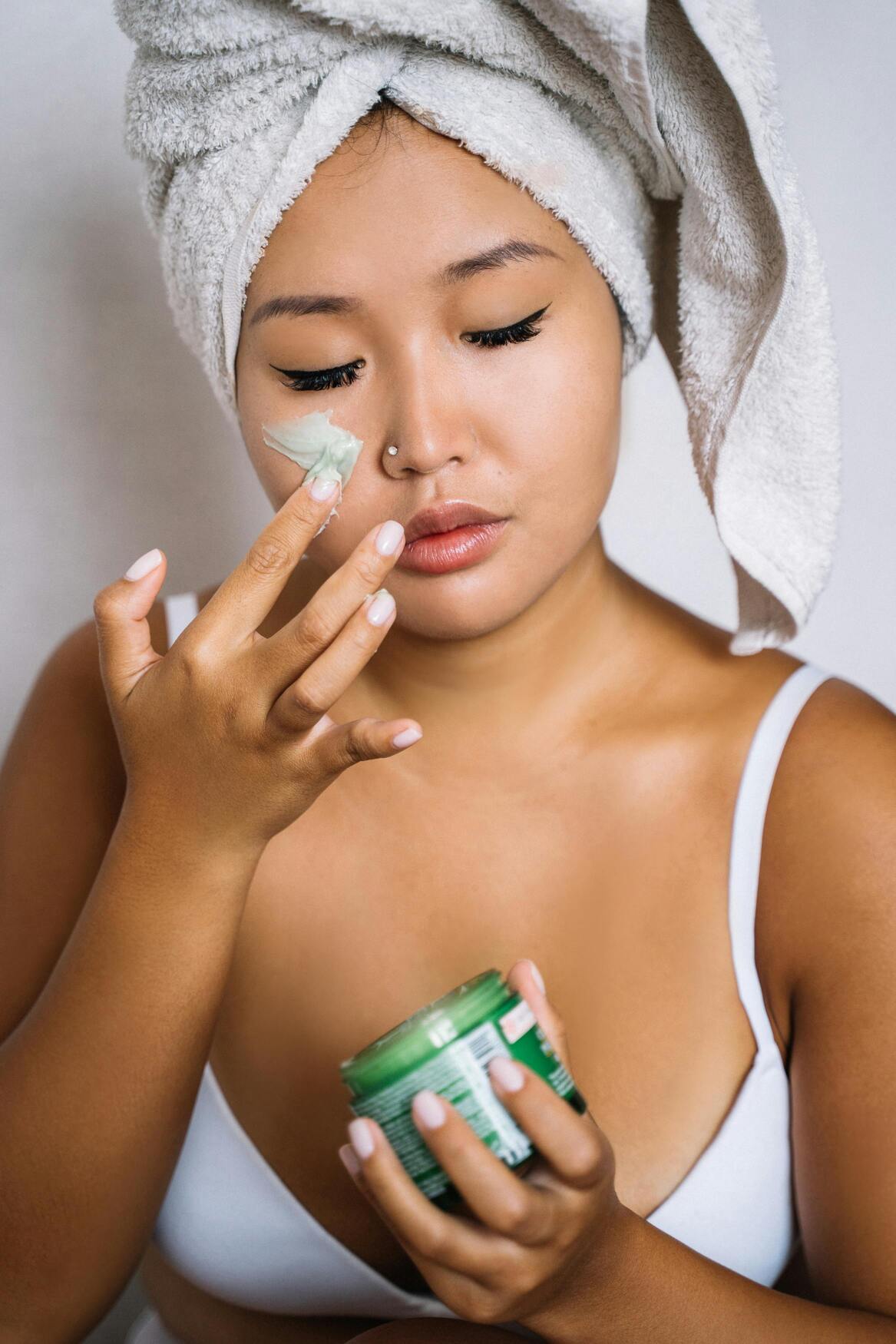Sensitive skin can be a challenge to care for. It’s prone to redness, irritation, and reactions to harsh ingredients, making it essential to choose products carefully. The key to managing sensitive skin lies in using gentle, effective ingredients that soothe and protect without causing irritation. In this article, we’ll explore the best skincare ingredients for sensitive skin, how they work, and tips for building a safe and effective routine. Let’s dive in!
1. What is Sensitive Skin?
Sensitive skin is characterized by:
- Redness: Often caused by inflammation or irritation.
- Dryness: A compromised skin barrier can lead to flakiness and tightness.
- Reactivity: Prone to stinging, burning, or itching when exposed to certain products or environmental factors.
If you have sensitive skin, it’s crucial to avoid harsh ingredients like alcohol, synthetic fragrances, and sulfates, and instead focus on soothing, hydrating, and barrier-repairing ingredients.
2. Top Skincare Ingredients for Sensitive Skin
Ceramides:
- What They Do: Ceramides are lipids that make up the skin’s natural barrier. They help retain moisture and protect against irritants.
- Why They’re Great for Sensitive Skin: They strengthen the skin barrier, reducing sensitivity and preventing moisture loss.
- Pro Tip: Look for moisturizers and cleansers with ceramides to keep your skin hydrated and protected.
Hyaluronic Acid:
- What It Does: A humectant that attracts and retains moisture, keeping the skin plump and hydrated.
- Why It’s Great for Sensitive Skin: It’s lightweight, non-irritating, and works for all skin types.
- Pro Tip: Apply hyaluronic acid serum to damp skin for maximum absorption.
Oatmeal (Avena Sativa):
- What It Does: Soothes irritation, reduces redness, and has anti-inflammatory properties.
- Why It’s Great for Sensitive Skin: It’s gentle and effective for calming reactive skin.
- Pro Tip: Use products with colloidal oatmeal for a finer texture and better absorption.
Aloe Vera:
- What It Does: A natural anti-inflammatory and moisturizer that soothes and heals the skin.
- Why It’s Great for Sensitive Skin: It’s incredibly gentle and helps reduce redness and irritation.
- Pro Tip: Look for pure aloe vera gel or products with a high concentration of aloe.
Niacinamide (Vitamin B3):
- What It Does: Reduces redness, strengthens the skin barrier, and regulates oil production.
- Why It’s Great for Sensitive Skin: It’s non-irritating and helps improve skin texture and tone.
- Pro Tip: Start with a low concentration (5%) and gradually increase if needed.
Centella Asiatica (Gotu Kola):
- What It Does: Promotes healing, reduces inflammation, and soothes irritated skin.
- Why It’s Great for Sensitive Skin: It’s a powerhouse ingredient for calming and repairing sensitive skin.
- Pro Tip: Look for serums or creams with centella asiatica extract.
Zinc Oxide:
- What It Does: A mineral sunscreen ingredient that provides broad-spectrum UV protection.
- Why It’s Great for Sensitive Skin: It’s gentle, non-irritating, and suitable for reactive skin.
- Pro Tip: Use zinc oxide-based sunscreens for daily protection.
Panthenol (Pro-Vitamin B5):
- What It Does: Hydrates, soothes, and repairs the skin barrier.
- Why It’s Great for Sensitive Skin: It’s calming and helps reduce redness and irritation.
- Pro Tip: Look for panthenol in moisturizers and serums.
3. Ingredients to Avoid for Sensitive Skin
While some ingredients are great for sensitive skin, others can trigger irritation. Avoid:
- Alcohol: Dries out the skin and disrupts the barrier.
- Fragrances: Synthetic fragrances are a common irritant.
- Essential Oils: Can cause allergic reactions or sensitivity.
- Sulfates: Harsh cleansers that strip the skin of natural oils.
- Retinoids (in high concentrations): Can be too strong for sensitive skin.
4. How to Build a Skincare Routine for Sensitive Skin
Here’s a simple, effective routine tailored for sensitive skin:
Morning:
- Cleanse with a gentle, fragrance-free cleanser.
- Apply a hyaluronic acid serum to damp skin.
- Moisturize with a ceramide-rich cream.
- Finish with a zinc oxide-based sunscreen.
Night:
- Double cleanse with an oil-based cleanser followed by a gentle water-based cleanser.
- Apply a niacinamide or centella asiatica serum.
- Moisturize with a soothing cream containing panthenol or oatmeal.
- Use a lightweight face oil (optional) to lock in moisture.
5. Tips for Caring for Sensitive Skin
- Patch Test New Products: Always test new products on a small area before applying them to your face.
- Stick to Minimalist Routines: Avoid using too many products at once.
- Avoid Hot Water: Use lukewarm water to cleanse your skin.
- Be Gentle: Pat your skin dry instead of rubbing it with a towel.
- Stay Consistent: Give your skin time to adjust to new products.
6. Product Recommendations for Sensitive Skin
Here are some top-rated products for sensitive skin:
- Cleanser: CeraVe Hydrating Cleanser
- Serum: The Ordinary Hyaluronic Acid 2% + B5
- Moisturizer: La Roche-Posay Toleriane Double Repair Face Moisturizer
- Sunscreen: EltaMD UV Physical Broad-Spectrum SPF 41
- Soothing Treatment: Aveeno Calm + Restore Oat Gel Moisturizer
7. When to See a Dermatologist
If your sensitive skin is causing severe discomfort, redness, or breakouts, consult a dermatologist. They can help identify triggers and recommend prescription treatments if needed.
8. Conclusion
Sensitive skin requires extra care, but with the right ingredients and routine, you can achieve a calm, healthy complexion. Focus on gentle, soothing ingredients like ceramides, hyaluronic acid, and oatmeal, and avoid harsh irritants. Remember, less is often more when it comes to sensitive skin.
For more skincare tips and product recommendations, subscribe to Universo Íntimo and follow us on social media. Let’s embrace gentle, effective skincare together!

